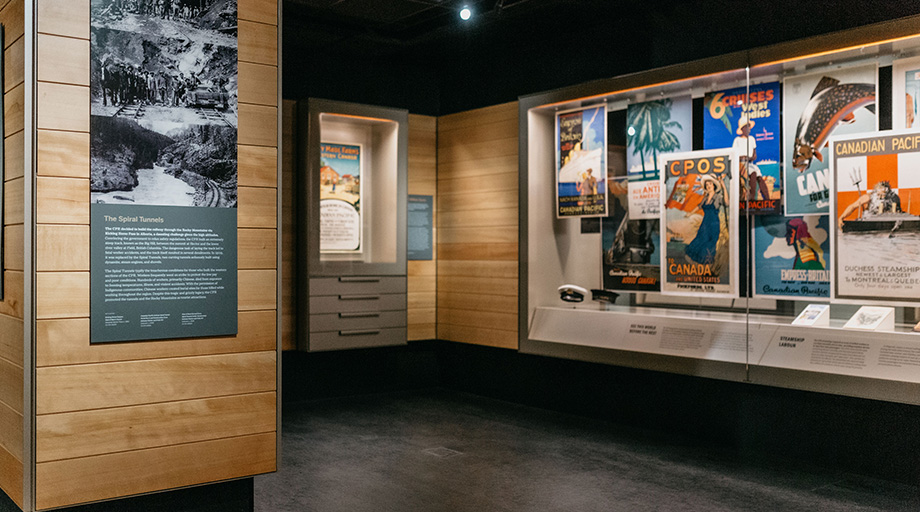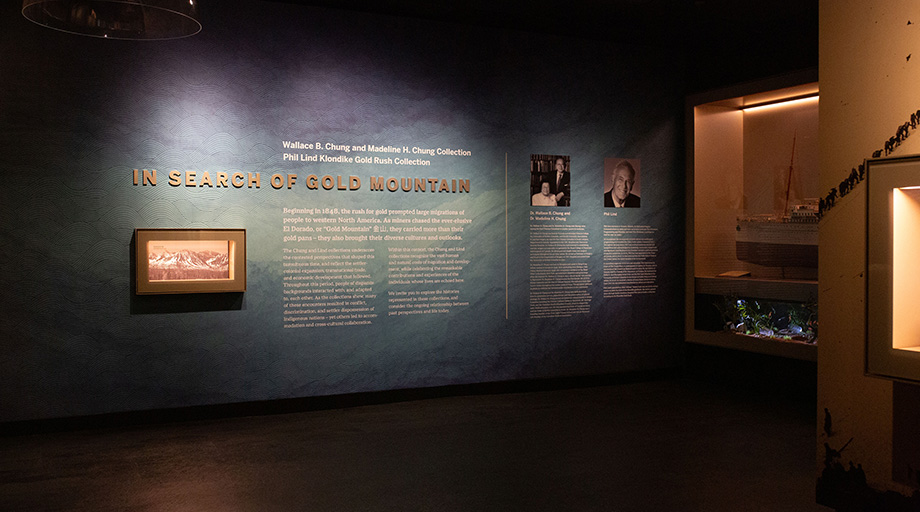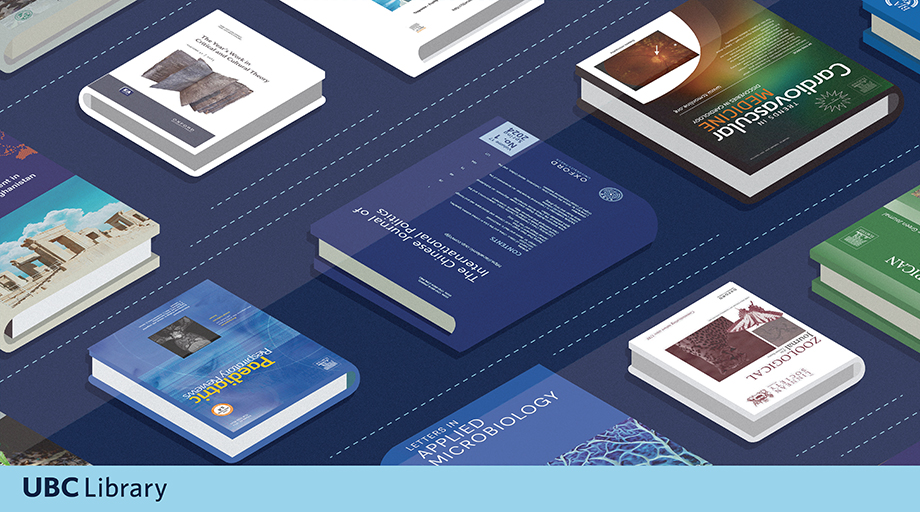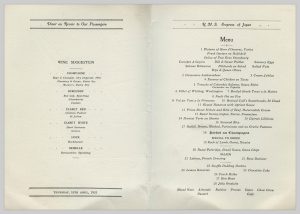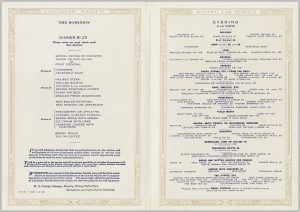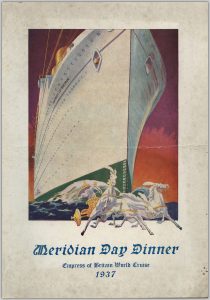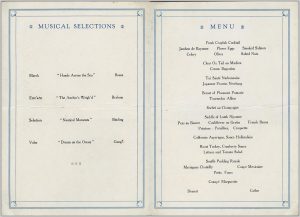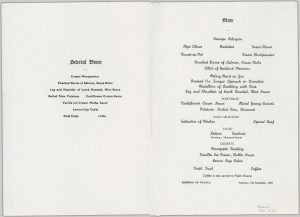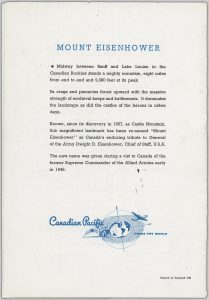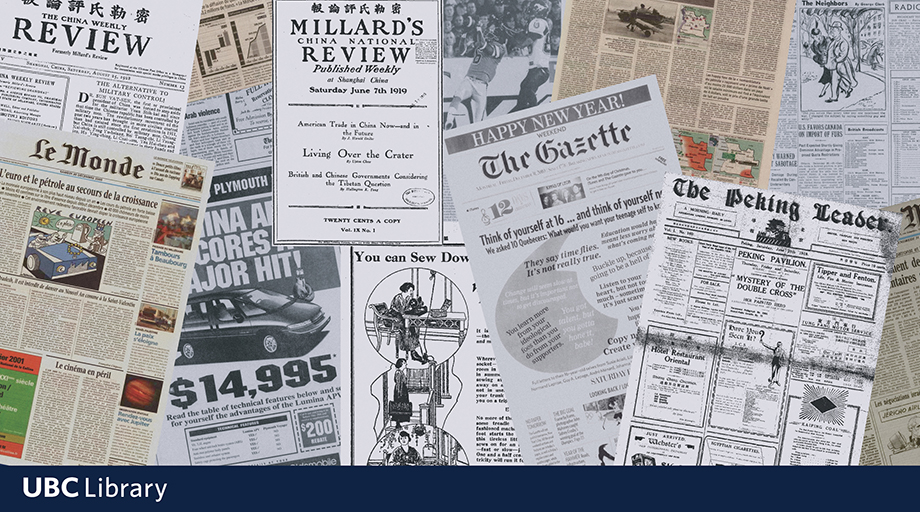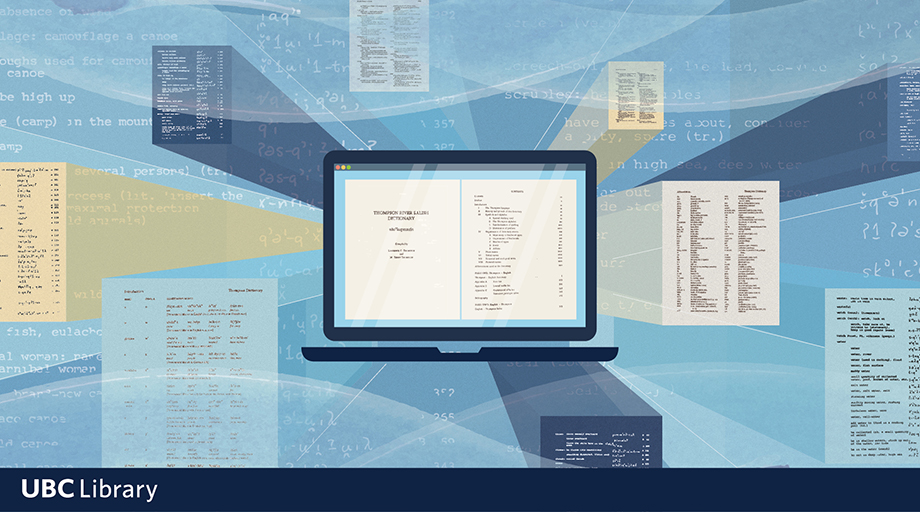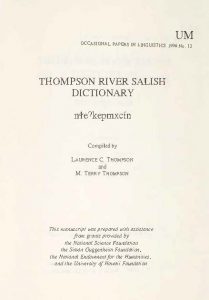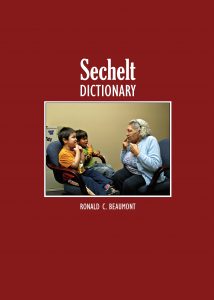Many thanks to guest blogger Barbara Towell, E-Records Manager with University Archives, for contributing the below post. This exhibit was co-curated by Barbara and RBSC Archivist Krisztina Laszlo.

Artray photo. ([1945]). Oscar outside Oscar’s Steak House at 701 Burrard Street (81420). Vancouver Public Library.
Oscar Blanck (1908-1954) was an entrepreneur, restaurateur and a bon vivant. Born in Brandon Manitoba, he was the eldest son of Jewish immigrants who escaped the antisemitic pogroms in late 19th-century Russia. Details are scant regarding Blanck’s early life except that part of it was spent with his parents and seven siblings in Winnipeg’s north-end known then as “Little Jerusalem”.
In the 1930s Blanck moved west settling in Vancouver with his wife Marjorie Prosterman. According to a 2018 interview with his daughter and UBC alumni Sharon Posner, the Blanck’s first opened a deli on Howe Street, but that venture failed. In 1943 Oscar and Marjorie tried their hand at business again by opening a small grocery and lunch counter called Oscar’s Deli. In the early years they sold groceries, home-made pickles, and sandwiches. This time the Blanck’s business did well enough to expand both their storefront and their menu as adjacent businesses either closed or moved. In just a few years the Blanck’s occupied a commanding spot at 1023 West Georgia and Oscar’s Steakhouse was established.
From Home-made Pickles to Home of the Stars

Westen, E. (1946). [Oscar Blanck tying his necktie] (UL_1622_0063). Uno Langmann Family Collection of B.C. https://dx.doi.org/10.14288/1.0426628
Oscar had two interconnected goals for his restaurant: to advertise his business by amplifying his image through press coverage; and to cultivate celebrities, which would presumably keep his restaurant full of customers hoping to catch a glimpse of a star. He achieved this objective by knowing what celebrity was in town, enticing them into his restaurant, and photographing the moment for posterity. One of the photographers frequently on-hand was Vancouver Sun photographer, Ralph Bower. Bower said that in the 1950s, Blanck would give him a free steak as payment for a photograph. But Bower was not the only photographer Oscar relied on, Blanck had a handful of photographers he could call at a moment’s notice including: Esther Weston who had a studio at 736 Granville Street, just two blocks from Oscar’s, before moving her business to New Westminster; and former Vancouver Sun photographer, Art Jones who in 1948 started Artray Studios and whose archive of 11,000 photographs was donated to Vancouver Public Library in 1994. If a musical act was playing next door at the Palomar Supper Club, and sleeping at one of the nearby hotels, Oscar endeavoured to ensure they were eating, often gratis, at his Steakhouse!

Jones, A. (c. 1945). [Oscar Blanck with Louis Armstrong] (UL_1622_0034). Uno Langmann Family Collection of B.C. https://dx.doi.org/10.14288/1.0426654
Explosive Midair Collision

Westen, E. (1946). [Oscar Blanck and a woman] (UL_1622_0074). Uno Langmann Family Collection of B.C. https://dx.doi.org/10.14288/1.0426628
A memorial service was held for the crash victims in Moose Jaw that was attended by more than 1000 people. Then Provincial Premier, former Baptist Minister, and father of socialized medicine in Canada, Tommy Douglas was the principal speaker followed by various religious personnel (Trotter, 1954). Blanck’s body was returned to Vancouver and buried in the Beth Israel Synagogue in Burnaby, BC.
Aftermath
Blanck’s widow Marjorie Blanck, sued the Canadian Government for $100K in damages which is estimated to be over 1 million dollars when adjusted for inflation. Multiple lawsuits brought by the families of the victims of Trans Canada Airline Flight 9 were eventually settled out of court.
On March 25, 1955, two years after Oscar’s death, Vancouver Sun entertainment reporter, Jack Wasserman had the grim task of reporting the auction results of both the Palomar Supper Club and Oscar’s Steakhouse, two pillars of 1950’s night life in Vancouver. The sale of the lighting fixtures, the name, and the stock of over 1000 celebrity photographs from Oscar’s Steakhouse earned $15,000 for the estate, which is upward of $168,000 in today’s currency.
About the photographs
The photographs in this exhibit are from the Uno Langmann Family Collection of B.C. Photographs donated to Rare Books and Special Collections in 2014 and 2020. Langmann purchased a lot of 146 Oscar Blanck photos locally from Love’s Auction House in the 1960s. The full collection held by UBC Library is digitized and available to view on Open Collections. The photos in this exhibit represent a selection from those held by UBC, and just a tiny slice of the multitude that once lined the walls of Oscar’s Steakhouse, 1023 West Georgia.
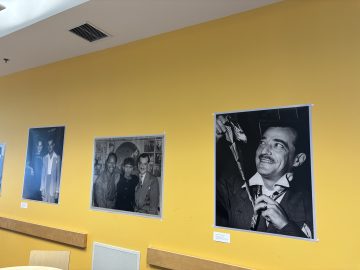
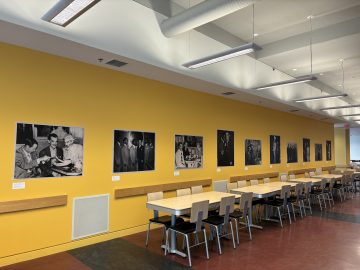


All About Oscar is curated by Krisztina Laszlo (Rare Books and Special Collections) and Barbara Towell (University Archives). We were unable to ascertain the names of some of the people in the photographs. Please contact us at rare.books@ubc.ca if you recognise anyone we could not identify.
Works Cited
Ancestry. n.d. “Solomon Blanck.” https://www.ancestry.ca/search/?name=Solomon_Blanck&event=_winnipeg&location=3243&priority=canada (accessed Oct. 9, 2023)
Bank of Canada. n.d. “Inflation Calculator.” https://www.bankofcanada.ca/rates/related/inflation-calculator/ (accessed Oct. 8, 2023)
Bollwitt, Rebecca. 2012 “Vancouver History, Photographer Art Jones.” Miss604. Nov. 7, 2012. https://miss604.com/2012/11/vancouver-history-photographer-art-jones.html (accessed, Oct. 8, 2023)
Cottrell, Alf. 1951. “But Listen.” The Vancouver Daily Province. March 10, 1951. https://www.proquest.com/hnptheprovince/docview/2368740460/B9BD5FA481664AEEPQ/1?accountid=14656 (accessed, Oct 8, 2023)
Donaldson, Jesse. 2019. “The Forgotten Clubs That Brought Vancouver Nights to Life.“ Montecristo Magazine, January 20, 2019, updated May 17, 2021. https://montecristomagazine.com/community/vancouvers-forgotten-nightlife-clubs (accessed Oct. 6, 2023)
Jewish Heritage Centre of Western Canada. n.d https://www.jhcwc.org/jhc-search-detail/?sid=12912&tp=articles&pg=1 (accessed Oct. 8, 2023)
Mackie, John. “Pavel Bure, Sonny Homer’s red pants, and Ralph Bower.” The Vancouver Sun. Jun 10, 2018. https://vancouversun.com/news/local-news/pavel-bure-sonny-homers-red-pants-and-ralph-bower. (accessed Oct. 8, 2023)
Posner, Sharon. 2018. Interview by Debby Frieman. The Scribe: The Journal of Jewish Museum and Archives of British Columbia, Volume 37: 20-24.
Richards, Dal and Jim Taylor. 2009. One More Time: The Dal Richards Story. Harbour Publishing 2009
Trotter, Graham. 1954 “Five Victims of Air Crash Identified.” The Nelson Daily News, April 12, 1954. https://open.library.ubc.ca/viewer/nelsondaily/1.0427552#p0z-2r0f: (accessed Oct 6, 2023)
Vancouver Daily Province. 1948. “Ties and T-bone Steaks Have Made Him Famous.” Dec 11, 1948. https://www.proquest.com/historical-newspapers/december-11-1948-page-80/docview/2368956007/se-2. (accessed Oct. 08, 2023)
Vancouver Daily Provence. 1954. “Eyewitness Accounts: TCA Crash Scene Terrible.” April 9, 1954, https://www.proquest.com/historical-newspapers/april-9-1954-page-3-44/docview/2369136451/se-2 (accessed October 6, 2023).
Vancouver Daily Province. 1954. “Victim’s Relatives Seek $1,795,000: Families, Estates Sue Crown for Airline Disaster.” Oct 14, 1954.October 14, 1954 (Page 10 of 42) – ProQuest Historical Newspapers: The Province – ProQuest (accessed Oct 6, 2023)
Wasserman, Jack. 1955. “About Now.” The Vancouver Sun. Mar 26, 1955, https://www.proquest.com/historical-newspapers/march-26-1955-page-29-64/docview/2240206669/se-2 (accessed Oct 8, 2023)








